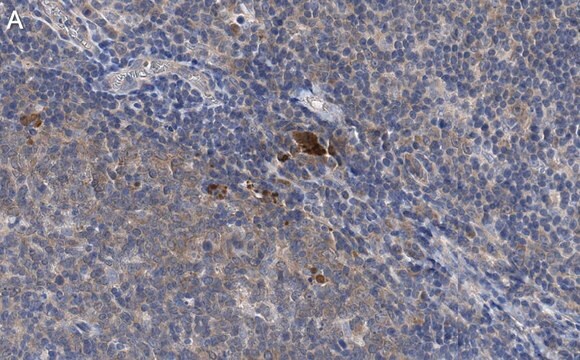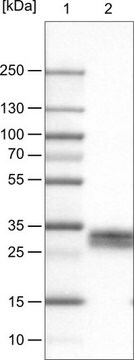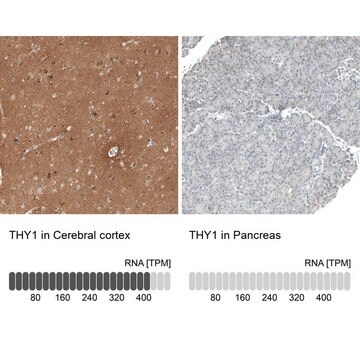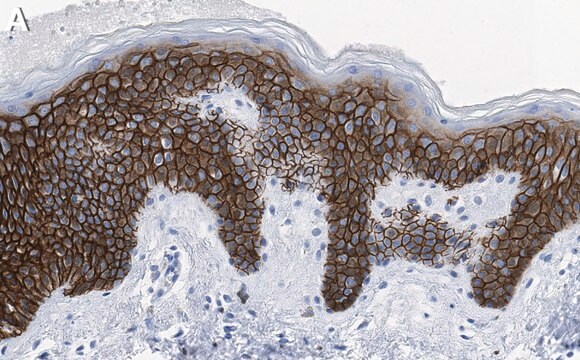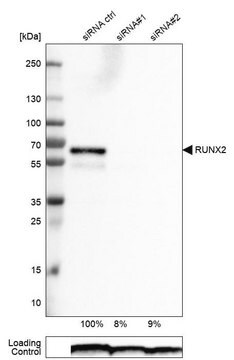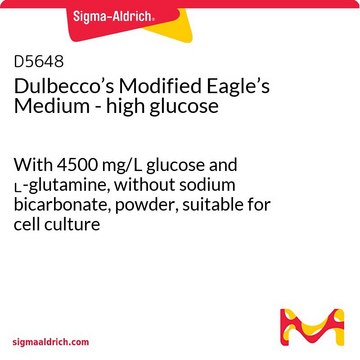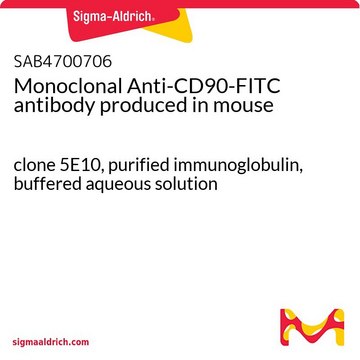SAB4200497
Anti-THY1 antibody, Mouse monoclonal
clone TH350, purified from hybridoma cell culture
Synonym(e):
Anti-CD90, Anti-CDw90, Anti-FLJ33325, Anti-Thy-1 T-cell antigen, Anti-Thy-1 antigen, Anti-Thy-1 cell surface antigen, Anti-thy-1 membrane glycoprotein, Monoclonal Anti-THY1 antibody produced in mouse
About This Item
Empfohlene Produkte
Biologische Quelle
mouse
Konjugat
unconjugated
Antikörperform
purified from hybridoma cell culture
Antikörper-Produkttyp
primary antibodies
Klon
TH350, monoclonal
Form
buffered aqueous solution
Mol-Gew.
antigen ~27 kDa
Speziesreaktivität
mouse, human, rat
Konzentration
~1.0 mg/mL
Methode(n)
ELISA: suitable
flow cytometry: 20-40 μg/test using A549 cells.
immunohistochemistry: suitable
western blot: 2.0-4.0 μg/mL using NT2 total cell extracts.
UniProt-Hinterlegungsnummer
Versandbedingung
dry ice
Lagertemp.
−20°C
Posttranslationale Modifikation Target
unmodified
Angaben zum Gen
human ... THY1(7070)
Allgemeine Beschreibung
Thy-1 cell surface antigen (THY1) is a glycoprotein that is expressed on the membranes of adult cells, mesenchymal stromal cells and cancer cells. It has a molecular weight of about 25-37kDa. The gene encoding THY1 is localized on human chromosome 11q23.3.
Spezifität
Immunogen
Anwendung
- immunoblotting
- flow cytometry
- immunofluorescence
Biochem./physiol. Wirkung
Physikalische Form
Lagerung und Haltbarkeit
Haftungsausschluss
Sie haben nicht das passende Produkt gefunden?
Probieren Sie unser Produkt-Auswahlhilfe. aus.
Lagerklassenschlüssel
10 - Combustible liquids
WGK
WGK 2
Flammpunkt (°F)
Not applicable
Flammpunkt (°C)
Not applicable
Hier finden Sie alle aktuellen Versionen:
Analysenzertifikate (COA)
Die passende Version wird nicht angezeigt?
Wenn Sie eine bestimmte Version benötigen, können Sie anhand der Lot- oder Chargennummer nach einem spezifischen Zertifikat suchen.
Besitzen Sie dieses Produkt bereits?
In der Dokumentenbibliothek finden Sie die Dokumentation zu den Produkten, die Sie kürzlich erworben haben.
Unser Team von Wissenschaftlern verfügt über Erfahrung in allen Forschungsbereichen einschließlich Life Science, Materialwissenschaften, chemischer Synthese, Chromatographie, Analytik und vielen mehr..
Setzen Sie sich mit dem technischen Dienst in Verbindung.